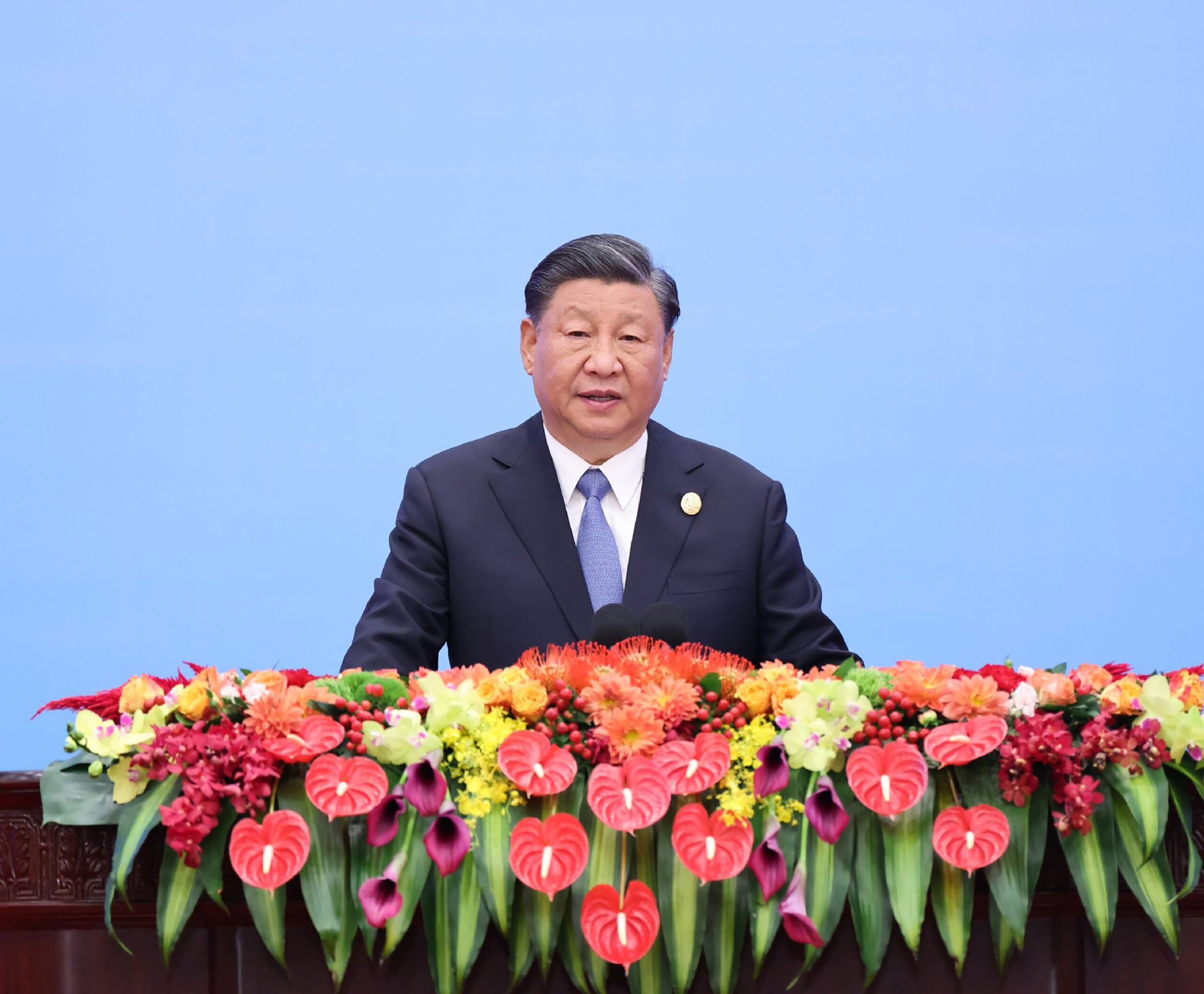
By Dr Mehmood Ul Hassan Khan
The Chinese President is a great visionary and the recently concluded 2 Sessions have vividly reflected strategic importance and global reach of numerous reforms of the Chinese President Xi Jinping which have many dimensions and dynamics constantly fostering development in the country.
Simply Xi has become of magnetic of reforms which successfully negated the Western narratives about China’s so-called stagnating economy and losing system.
While chairing the annual sessions of China’s top legislature and top political advisory body, or the “two sessions Xi emphasized to deepen reform to inject strong impetus into promoting high-quality development and advancing Chinese modernization.
Evidently, under the strategic leadership of Xi China has entered a new era of structural reforms which has further strengthened its economy, society, governance, and of course international influence.
It seems that after Deng Xiaoping, Xi Jinping has become another remarkable reformer in China who has introduced numerous reforms in every sector of macro-economy, social development, ecological sphere, industry, real estate, financial integration, foreign policy and last but not least, private sector which has accelerated pace and productivity leading the country and its people towards further progress and prosperity.
In the last ten years, more than 2,000 reform measures have been introduced and implemented enabling the country to eliminate extreme poverty, promote integrated urban-rural development, fight corruption, support businesses, boost innovation, and push forward a green revolution which is commendable.
Resultantly, the Chinese economy has not only sustained robust growth but also more than doubled since 2012, cementing the country’s global status as a major growth contributor. Now Xi is pursuing strategic goal of Chinese modernization with Chinese socialism characteristics. 
Xi emphasized to deepen reforms to revolutionize the socialist market economy, such as property rights protection, market access, fair competition, and social credit. “Ultimately, high-quality development depends on reform.
The reforms led by Xi have been based on thoughtful considerations derived from his many years of applied knowledge and diversified expertise. With unprecedented scope, scale and intensity, Xi’s reforms have covered economic, political, cultural, social, ecological and Party building fields.
Xi initiated an unprecedented anti-corruption national campaign which ultimately purified the political ecosystem as well as the economic ecosystem and proved conducive to straightening out the market order and restored the market.
Under his leadership, a full and rigorous Party self-governance system was built, and a sound system of Party regulations has taken shape. He improved the inspection system and established the national supervision system, “confining power to an institutional cage.”
He also initiated an unprecedented reform of the Party and state institutions to “address major and difficult issues drawing widespread attention.”
He propelled the Party’s self-revolution to guide social change. The Party has taken the initiative to eliminate institutional deficiencies in social development to unlock productive forces.
In this regard, Xi has advocated fully advancing law-based governance, striving to solve the long-standing problems of power outweighing the law and personal relationships trumping legal principles.
Xi proposed a new development philosophy featuring innovative, coordinated, green, open and shared growth. The reform also tackled the challenge of overcapacity in certain sectors.
In 2024, Xi emphasized on developing new quality productive forces which is widely believed as the recognition that the economic growth model primarily driven by low-cost labor, extensive yet inefficient investment, external demand and excessive resource consumption can no longer be sustained, and China must actively cultivate new technologies, new business models and future industries to enhance the quality and efficiency of development.
Xi believes that to develop new quality productive forces, it is imperative to further deepen reforms to boost sci-tech innovation.
It seems that new quality productive forces align with Xi’s earlier vision of an innovation-driven development strategy.
Xi also emphasized the need to promote financial reforms to facilitate financing for private enterprises. From 2012 to 2023, the number of private enterprises in China more than quadrupled, and the proportion of private enterprises in the total number of enterprises increased from less than 80 percent to over 92 percent.
While reinforcing the Party’s leadership, Xi initiated market-oriented reforms for state-owned enterprises (SOEs). Xi has made institutional opening-up a priority. In one such move, China has lifted foreign ownership limits for securities companies, management companies of securities investment funds, futures companies, and life insurance companies.
Xi introduced poverty relief strategy and implemented “targeted poverty elimination and in less than 10 years, China eradicated absolute poverty in rural areas, a problem that had persisted for thousands of years in the country.
He carried out rural healthcare system rural areas in the 1970s, and Xi’s reform initiatives regarding agriculture, rural areas, and farmers encompassed a broader range of changes.
It is good omen that under Xi’s leadership, China became the country with the fastest improvement in air quality, the largest increase in forest resources, and the largest area of afforestation globally. The country has also held a steady position as the world leader in installed capacities for hydro, wind, solar, and biomass power generation amid his campaign to revolutionize the energy field.
China has also developed the world’s largest carbon market and vowed to achieve carbon neutrality after carbon peaking in a much shorter time than developed countries. “Green and low-carbon development is the order of the day, and those who follow it will prosper.
Last year, China’s economy grew by 5.2 percent, contributing one-third of global growth. The country’s economic engine remains strong. The “next China,” according to many analysts, is still China.
Modernization, digitalization, qualitative industrialization, diversification, implementation of new productive forces, Artificial intelligence Plus, Green Transformation, innovations in health, agriculture, innovative regulatory mechanism in real estate, finance & banking industry, human capital development and last but not least, improvements in National Capacity system would further accelerate pace, progress and prosperity in the Chinese system which always cares about people, nature, business, and investments.
The ongoing decoupling and delinking of the US and the West will achieve noting but will prove self-destructive and Boeing’s big trouble is a mirror of US manufacturing industry.


